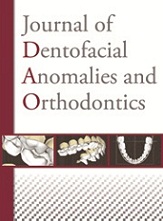No CrossRef data available.
Article contents
What’s the best management style for your office?
Published online by Cambridge University Press: 20 October 2010
Abstract
Stating the problem and its ramifications
The rapid changes that have affected the practice of orthodontics in recent years make it necessary for us to re-examine the traditional ways we have managed our offices. Our basic training, essentially technical in nature, never prepared us to direct the operation of an enterprise that has important business as well as orthodontic treatment components. In today’s world we should properly consider our practices as veritable full scale health care delivery organizations. The accelerating rate of change in modern medicine and in the way both patients and referring dentists perceive it and the exponentially rising flood of information about business administration, finance, and law, have all contributed to the block of time that orthodontic offices must devote to management concerns. These details must be dealt with appropriately to allow orthodontists to practice their profession under optimal conditions. And among those essential non-clinical tasks, there is little doubt that proper direction of human resources is the most difficult. And that is entirely understandable because in serving as team leaders orthodontists must interact with a host of individual personality issues. This new challenge is monumental. To confront it successfully orthodontists must become more than skilled technicians, they must perform as successful managers. In this article we propose to present practical rules for efficient office management.
- Type
- Research Article
- Information
- Journal of Dentofacial Anomalies and Orthodontics , Volume 11 , Issue 2: Professional environment , June 2008 , pp. 102 - 116
- Copyright
- © RODF / EDP Sciences


